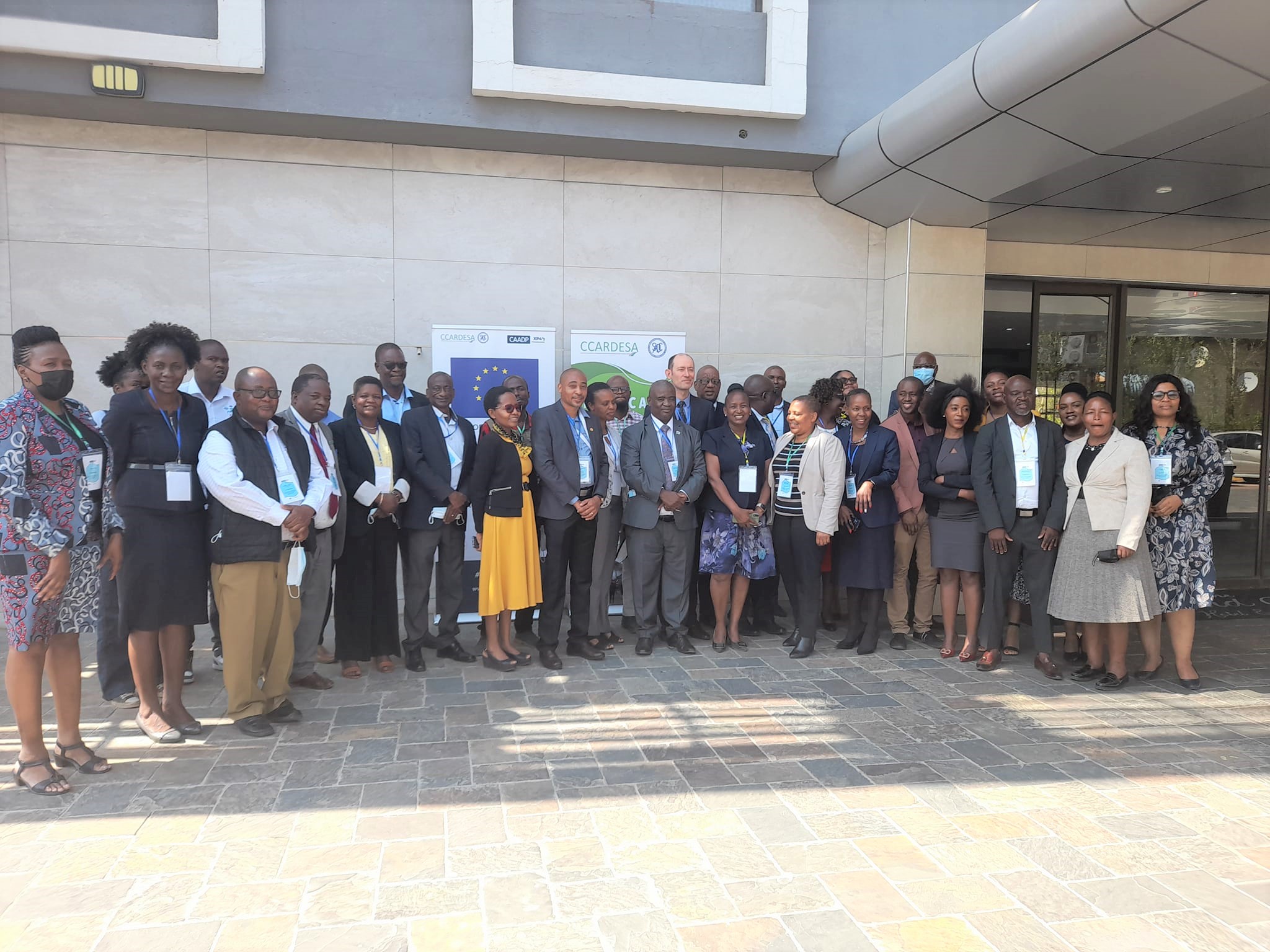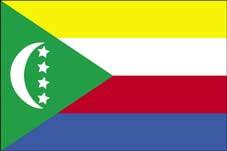CCARDESA Supports Botswana’s CAADP Performance Process

CCARDESA is implementing the CAADP-XP4 Programme in collaboration with the African Forum for Agricultural Advisory Services (AFAAS), Association for Strengthening Agricultural Research in East and Central Africa (ASARECA), West and Central African Council for Agricultural Research and Development (CORAF) and Forum for Agricultural Research in Africa (FARA).
The Botswana Ministry of Agricultural Development and Food Security (MoA) partnered with CCARDESA through the support of the EU-funded CAADP-XP4 Programme to hold a three (3) days Stakeholder Feedback and Sensitization Workshop on the country’s performance on the CAADP or Malabo Commitments. The workshop focused on the results from the 3rd Biennial Review (BR) Performance Report of the African Union Commission on the implementation of the Malabo Declaration on Accelerated Agricultural Growth and Transformation and also sensitized the local stakeholders on Knowledge Management for Agricultural Development (KM4AgD). The workshop was held from 20th to 22nd September, 2022 at the Grand Aria Hotel in Gaborone, Botswana.
The Biennial Review (BR) reports are African Union’s mechanism to monitor implementation of the Comprehensive African Agriculture Development Programme (CAADP) and its Maputo and Malabo declaration commitments made in 2003 and 2014 in the mentioned cities respectively. CAADP is an African Union initiative within the context of the New Partnership for Africa’s Development (NEPAD); where Member States (MS) seek to accelerate economic growth, enhance food and nutrition security and eliminate hunger in the continent. There are seven (7) Malabo commitments that the BR review is monitoring in each MS. The implementation of CAADP is being done in partnership with the private sector, State Owned organizations (SOEs), farmer organizations, regional and international development organizations such as CCARDESA. The publishing of performance on implementation of the CAADP and Malabo commitments by Africa countries is done every two years and presented to the AU summit of heads of states and government.
Botswana was on track in the inaugural report of 2017; but not so on the subsequent BR reports of 2019 and 2021. It was therefore, vital to take stock of the country’s performance in order to address any shortcomings and dialogue on how the stakeholders can collectively implement the recommendations advanced to assist close the gaps that have been identified.
At the workshop, the Director, Department of Agricultural Research, Statistics and Policy Development (DRSPD) Mrs Mmadima Nyathi in her opening remarks highlighted providing feedback on the Biennial Review performance report to Botswana stakeholders and sensitising them about Knowledge Management as the main objective of the workshop.
The Acting Permanent Secretary in the Ministry of Agriculture, Mr Thabang Botshoma in his keynote address said Botswana is committed to ensuring that it meets the Malabo declaration targets. He stressed investment as one key area that requires urgent attention. He also emphasized that knowledge management and data validation are key in the Malabo reporting process.
Mr Jose Becerra the Deputy Head of Cooperation, EU Delegation to Botswana gave his remarks where he shared about the Global Europe (NDICI-Global Europe) an initiative which merges several former EU external financing instruments. He said this initiative addresses agricultural research climate change among others. He also emphasized EU ‘s commitment to support agricultural growth and sustainability in the SADC Region. He cited the Beef value chain development that EU is supporting in Botswana and also new engagement for agricultural research and development around climate change and mitigation targeting institution such as CCARDESA.
CAADP-XP4 Programme Officer Ms Futhi Magagula also presented an overview of CCARDESA and CAADP-XP4 Project where she highlighted the crucial role of CCARDESA in supporting SADC countries including Botswana to improve their reporting on the Malabo Commitments.
Ms Daphney Keboneilwe, the Deputy Director, DRSPD shared an overview of the CAADP Malabo/ declaration implementation in Botswana highlighting how the country wason track in the inaugural report of 2017; but fell behind on the subsequent BR reports of 2019 and 2021.
The Botswana CAADP Desk Officer, Mr Malema presented on the feedback report from the 3rd Biennial Review Report. He urged stakeholders to integrate the CAADP Biennial Review data collection process into existing national monitoring and reporting systems.
Mr Mokhutshwane the Chief Scientific Officer presented the Botswana performance and how they can improve to meet the Malabo targets.
The CAADP youth network team also demonstrated their engagement in Malabo implementation.
Mrs. Bridget Kakuwa-Kasongamulilo, CAADP-XP4 ICKM Officer presented an overview of the SADC Knowledge Management and on the CCARDESA Climate Smart Agriculture Learning Mobile Application. In the same vein, CCARDESA Information Communication Knowledge Management Focal Point contact person for Botswana, who is also the Botswana National Agricultural Research and Development Institute (NARDI)’s Records Manager Ms. Keneilwe Bungile shared her organization’s Knowledge Management Strategy.
An International Consultant, Mr Martin Muchero shared the CAADP result framework, an overview of the Malabo Declaration Commitments and what is being measured. He also explaineded the technical guidelines for calculating the Malabo indicators.
Alongside the Botswana BR Performance Feedback Report Meeting, was a media briefing which was held on the first day, where the media raised questions and learned more about Malabo commitments from CCARDESA and the CAADP Focal point person for Botswana.
Among others, the meeting identified some challenges which affected reporting. These include: a lack of data for some indicators, poor data quality, complex data collection, and analysis methodologies, and inadequate resources for data collection. As a way forward, the stakeholders recommended among others the need for intense stakeholder participation, inter sectoral cooperation and coordination of invest in infrastructure.
The CCARDESA Executive Director Dr Cliff Dlamini, officially closed the meeting by thanking all stakeholders for their contributions and commitment to supporting Botswana. He also stressed that CCARDESA’s stance to support SADC member states meet their Malabo targets and strengthening of Knowledge management for sustainable development.
The meeting participants included academics, policy makers, planners, media practitioners and representatives from NGOs, youth organizations among others.
























































